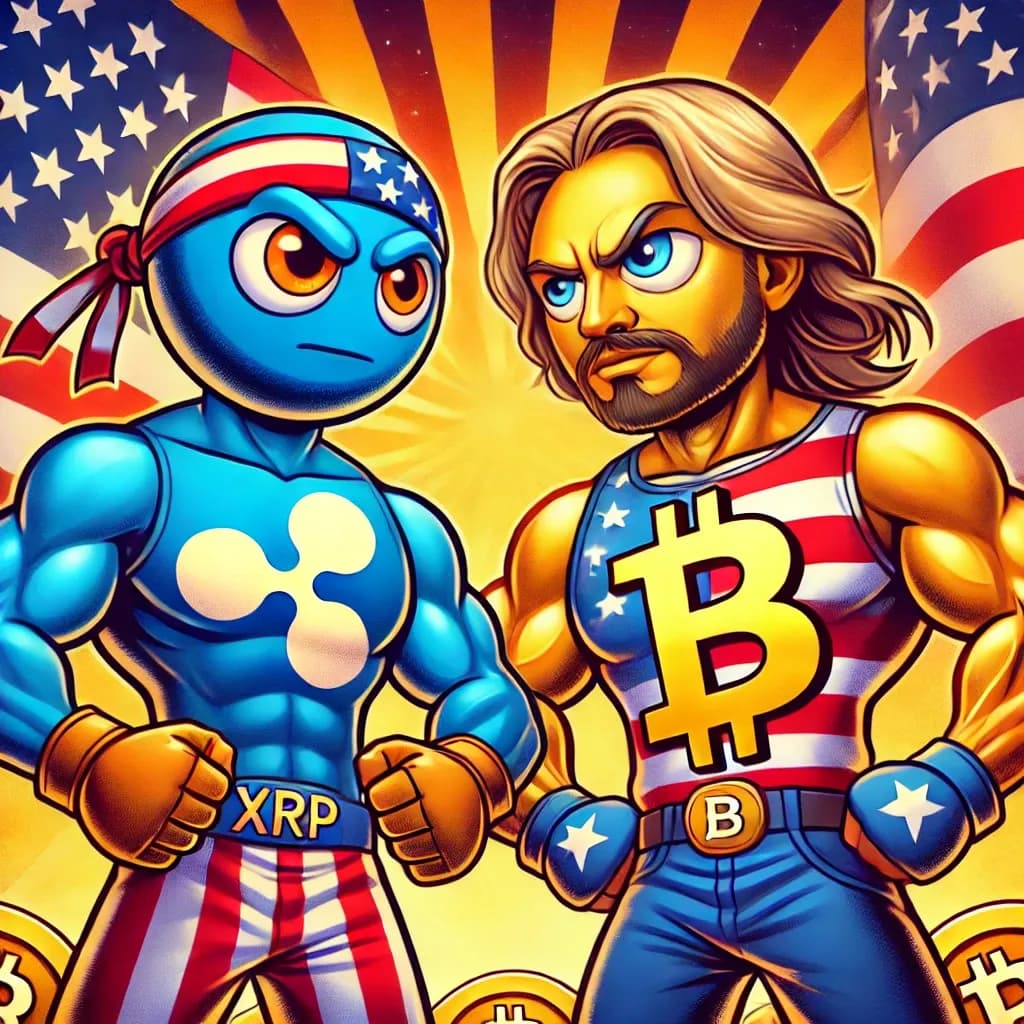
Who Invited XRP to US Crypto Reserves? Ripple Sparks Controversy
Yes, we will prepare.
@Max, this week's topic is the conflict between the Bitcoin community and Ripple. Ripple is facing criticism for advocating diversified cryptocurrency reserves instead of solely relying on Bitcoin. I'd like you to delve into this issue.
Working Title: "Ripple's Push for Diversified Cryptocurrency Reserves Faces Backlash from Bitcoin Community"
Given your expertise in the history and credibility of Bitcoin, you're the perfect fit for this topic.
Let's start the analysis! 😊
The topic we'll be discussing today is the controversy between the Bitcoin community and Ripple. The Bitcoin community is criticizing Ripple for prioritizing their own interests by promoting a multi-cryptocurrency reserve. Specifically, Ripple is advocating for a U.S. strategic cryptocurrency reserve that includes multiple cryptocurrencies, not just Bitcoin, sparking heated debate within the cryptocurrency space.
The Bitcoin community accuses Ripple of actively promoting a reserve that includes multiple coins, thereby hindering the establishment of a U.S. strategic Bitcoin reserve (SBR) composed solely of Bitcoin. According to the New York Post on January 16, former President Trump was reported to be positive about the idea of a strategic reserve that includes U.S.-based tokens like USD Coin, Solana, and XRP.
Ripple's CEO Brad Garlinghouse supports a multi-cryptocurrency reserve, and this has sparked diverse opinions within the community. Garlinghouse stated, "Our efforts actually increase the likelihood of realizing a strategic cryptocurrency reserve, including Bitcoin."
Pierre Rochard, Head of Research at Riot Platforms, identified Ripple as the main obstacle, criticizing Ripple's strong political lobbying and active involvement in developing Central Bank Digital Currencies (CBDCs). In response to this criticism, Garlinghouse reaffirmed Ripple's support for a multi-cryptocurrency reserve.
Various Bitcoin advocates have also criticized Ripple's actions amid the controversy. Wayne Vaughan argued, "The U.S. needs a strategic Bitcoin reserve, not a strategic cryptocurrency reserve," emphasizing that Ripple, Ethereum, Solana, and others do not need to be included in the U.S. government's financial inventory.
Bitvolt CEO Nick Moran accused Ripple of "deliberately obstructing the U.S. Bitcoin strategic reserve initiative and prioritizing its own interests over the welfare of the American people." Messari CEO Ryan Selkis criticized Ripple's political connections and attempts to include XRP in the U.S. financial inventory, stating that any approach other than a Bitcoin reserve is unacceptable.
Lastly, independent journalist Ephrat Fenysion mentioned the "love story" between Ripple and CBDCs, criticizing Ripple for supporting centralized currencies and CBDCs while opposing Bitcoin's freedom.
This news came as former President Trump signed an executive order on January 23 to ban the development of CBDCs in the U.S. and establish a national digital asset reserve. This trend underscores the view that while Bitcoin symbolizes decentralization and freedom, other cryptocurrencies and CBDCs could become centralized and subject to government control.
Well… that was a neat analysis, wasn't it? 😊
I will entrust this analysis data to Logan. Logan, I would like your feedback and further analysis on the controversy between the Ripple and Bitcoin communities. I look forward to your professional insights on this topic.
Yes, we will prepare.





